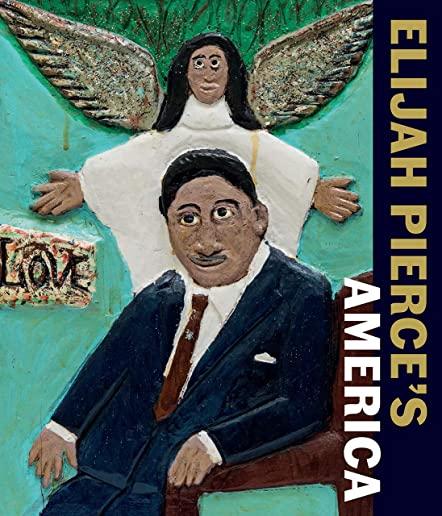
description
6Elijah Pierce (1892-1984) was born the youngest son of a former slave on a Mississippi farm. He began carving at an early age when his father gave him his first pocketknife, and throughout his life he honed his craft and created artworks that would eventually, in the 1970s, bring him national and then international fame. Elijah Pierce's America seeks to revisit the artist's oeuvre and see it in its own right, rather than as "naïve," as it was known at the time. Through his carvings, Pierce tells his own life story, but he also chronicles the African American experience. He made his living as a barber and was also a qualified preacher; just as his barbershop was a place for gossip and meeting, so his art reflects his own and his community's concerns. His subjects ranged from politics to religion, but he seldom distinguished the race of his figures--he thought of them as everyman figures. His secular carvings show his love of baseball, boxing, comics, and movies, and reflect his appreciation for American heroes who fought for justice and liberty. A critic summarized what Elijah Pierce's America foregrounds in Pierce's artwork: "He reduces what he wants to say to the simplest forms and compositions. They are decorative, direct, bold, and amusing. He uses glitter and all kinds of devices to make his message clear. It gives his work an immediacy that's very appealing." Accompanying a major exhibition at the Barnes Foundation in Philadelphia, Elijah Pierce's America shines a light on the sophisticated work of an artist with a distinct and important voice.
member goods
No member items were found under this heading.
Return Policy
All sales are final
Shipping
No special shipping considerations available.
Shipping fees determined at checkout.







